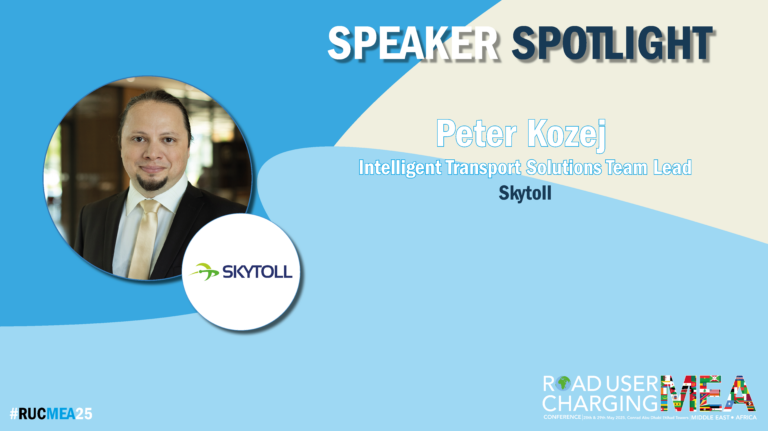 Name: Peter Kozej
Name: Peter Kozej
Job Role: Intelligent Transport Solutions Team Lead
Organisation: SkyToll
What is the best aspect of your job?
The best part of my job is witnessing the steady technological advances that enable companies like SkyToll to create increasingly accurate, fair, and efficient electronic toll collection systems. The improved systems are benefiting road authorities and users alike, for example, by enabling free-flow traffic, reducing congestion, and encouraging the use of cleaner vehicles.
What is the biggest challenge facing those with responsibility for user-financed transportation in 2025?
The biggest challenge is adapting to the ongoing technological and societal shifts in transportation, such as electromobility, alternative fuels, micromobility, and multimodal travel. Traditional funding models that combine taxes and tolls may soon prove inadequate, requiring new, flexible approaches to road user charging effectively addressing these emerging trends and ensuring sustainable infrastructure funding. In addition, the increasingly diverse – and sometimes chaotic – mix of transport modes poses significant safety challenges that need to be carefully managed.
What’s your best piece of advice for those looking to implement user-financed transportation solutions?
In addition to aiming for financial self-sufficiency, consider the broader societal, environmental and external costs of transport when designing the funding model. Engage all key stakeholders-including road users, policymakers, and industry experts-early in the process to ensure that the solution is fair and flexible enough to adapt to future technological developments and evolving user needs. Use the funding strategy as an opportunity to positively influence user behaviour and reduce the external costs associated with transport.
Does legislation help or hinder development in the sector?
Legislation can either help or hinder development, depending on how it’s structured. Well-written, balanced legislation clearly defines the roles and responsibilities of all stakeholders, providing essential guidance while leaving room for innovation. Conversely, overly prescriptive or outdated regulations can stifle creativity, slow technological progress and limit the ability to respond effectively to emerging trends.
How will the business of user-financed transportation have changed by 2030?
By 2030, user-financed transportation will be increasingly technology-driven, providing a transparent and seamless experience for road users. Policies will shift towards actively reducing external costs such as environmental impact, congestion and safety risks, making road-user charging systems smarter, fairer and more sustainable.
Why are you looking forward to speaking at Road User Charging Conference 2025?
I’m looking forward to speaking at the Road User Charging Conference Middle East and Africa 2025 because it’s a unique opportunity to network with industry peers, share experiences and gain valuable insights. The event also provides an ideal platform to showcase proven and tested road user charging solutions to road authorities and ministries, helping them to effectively address their transport challenges, whether in developing or developed regions.


 Name:
Name:  Discover the key trends and challenges shaping the future of user-financed transportation –spanning tolling, pricing and road usage charging – at Akabo Media’s
Discover the key trends and challenges shaping the future of user-financed transportation –spanning tolling, pricing and road usage charging – at Akabo Media’s 


